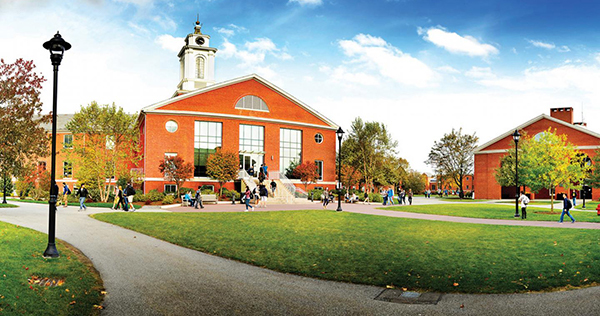Star Educator
It was a dark sky above Illinois that literally opened up a universe for Bentley faculty member George Fishman.
“I was fascinated, and not just in terms of memorizing the names of celestial objects. I really wanted to study astronomy and understand our place in the universe,” he recalls of that night 26 years ago.



